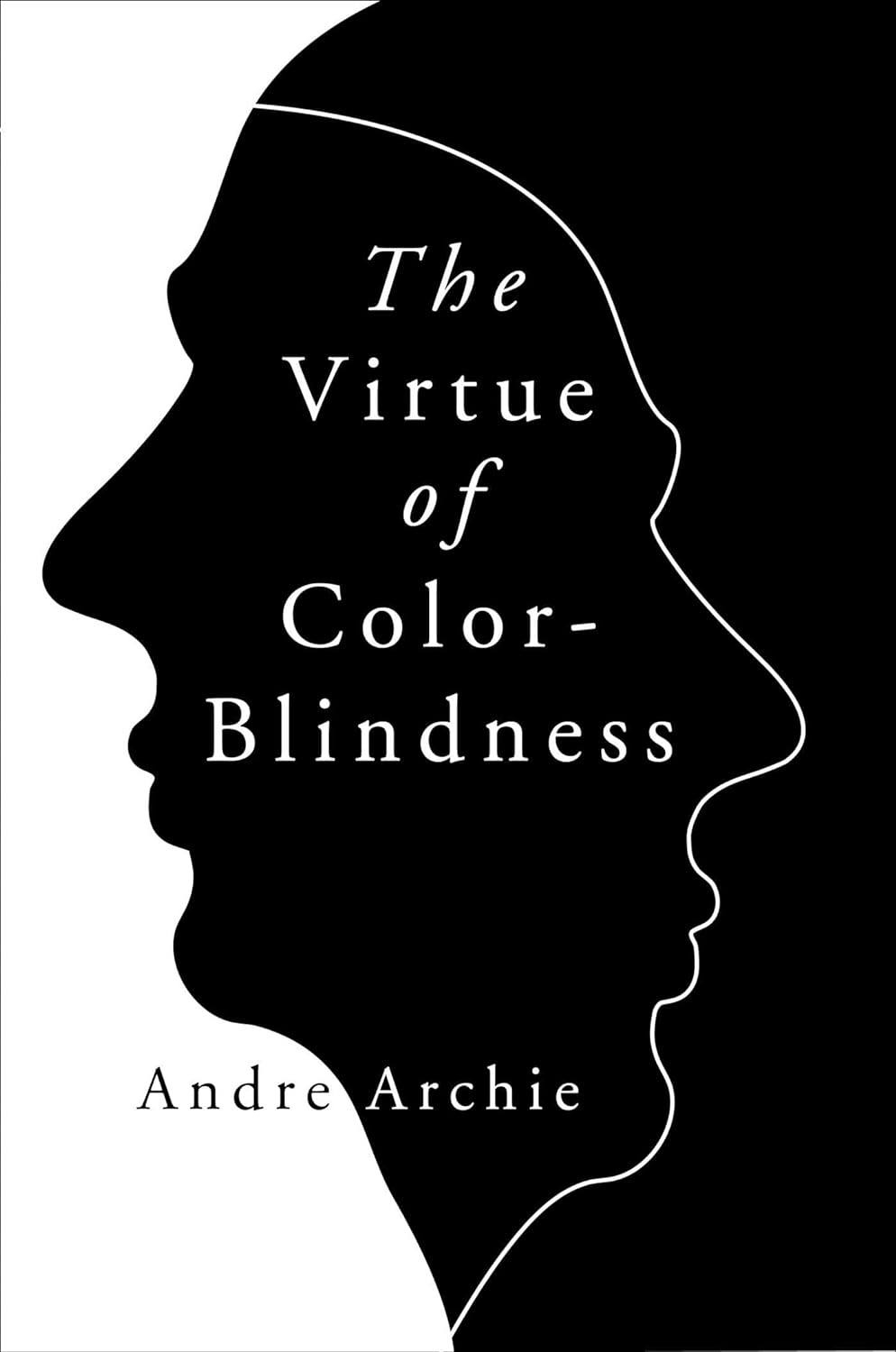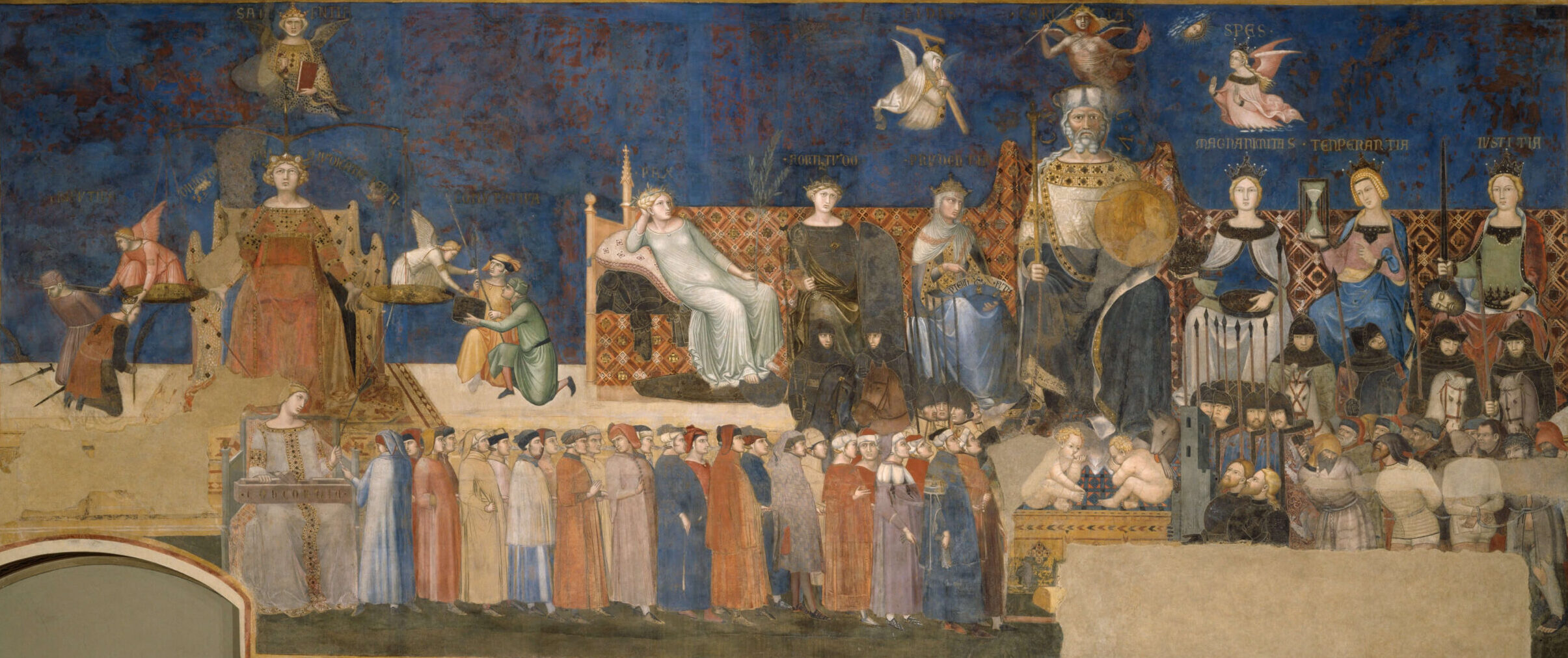Though the term “color-blindness” has come under attack in recent years, the color-blind approach to race relations is superior to anti-racism and identity politics in every way. Color-blindness is grounded in the understanding that an individual’s or a group’s racial membership should be irrelevant when choices are made or attitudes formed. Instead, character should be understood as the root of individual choices and attitudes. As Martin Luther King, Jr., famously says in his “I Have a Dream Speech,” he wants his children to live in a nation where they would be judged by the content of their character, not by the color of their skin. This color-blind dream is deeply rooted in Western philosophy and should be restored as the American ideal.
The color-blind ideal’s emphasis on character helps define what it means to be an American in both creed and culture. In order to see just how significant prioritizing character over ascriptive qualities such as race has been in the West, one must begin with some of the first recorded reflections on the moral importance of character, which begin with the ancient Greek ethical tradition known as eudaimonism. As an ethical framework, initiated by Plato and Aristotle, eudaimonism assumes that the ultimate human good is happiness, and the task of ethics is to figure out what exactly happiness is and what contributes to happiness. Unlike modern ethics such as utilitarianism or versions of deontology, which require criteria for selecting the best action, ethics for the ancient Greeks is concerned with the best way to live; it is person-centered rather than act-centered. The best way to understand the differences between ancient and modern ethics is to see how modern ethics’ emphasis on “criteria” for action can be justified in ascribing moral status to ascriptive qualities. As a moral theory, utilitarianism can be complex, but for the sake of showing the difference between ancient Greek ethics and modern ethics, only the basic aspects of utilitarianism are necessary to grasp.
The most salient utilitarian criterion is the one that is applied to actions to determine whether or not those actions are morally permissible. That criterion is the utility principle. Utilitarians must ask the question, “Will this particular action produce greater overall human well-being?” The question seeks to assess the morality of an action by whether the action itself produces the most utility, or at least as much utility, as any other action. Utility, defined as pleasure or happiness, resides either in actions pertaining to intellectual pursuits or the satisfaction of bodily desires. The utility question is successfully answered, according to utilitarians, once additional criteria are satisfied. These additional criteria include the requirement that actions be guided by how much utility would be provided to the audience as a result of one’s actions.
It is with this criterion that utilitarianism, and by extension the modern approach to ethics, is susceptible to attributing moral worth to ascriptive qualities such as one’s race. The vulnerability of utilitarianism to this kind of interpretation, and the modern, rule-based approach to ethics in general, resides in its lack of a comprehensive standard for determining the nature and limits of the criterion that go into evaluating actions. What’s to prevent race or racial characteristics from being used as a criterion in deciding whether or not an action produces the greatest amount of utility, happiness, or well-being?
Real-world examples of race or racial characteristics being used in the service of promoting utility through public policy include the various percent plans that are designed to admit to selective state universities the top 10 percent of graduating students from high schools within a state. The Texas Top Ten Percent Plan is probably the most well-known. The assumption of the percent plans is that because most high schools, especially in urban areas, are segregated along the lines of class and race, the top-performing graduating high school students guarantee that at least a percentage of a flagship university’s incoming cohort of students will be of color and/or economically disadvantaged.
It’s mostly issues of race, and the underrepresentation of African Americans at flagship universities, that have fueled the popularity of these race-conscious programs. But these programs are very blunt and crude instruments of utilitarian social policy that end up “type-casting” schools based mostly on the ascriptive quality of race. In arguing for these types of percent programs, it’s not enough for state legislators to say that they are merely using segregated schools as a proxy for socioeconomic factors such as poverty. Race itself becomes the means by which moral merit is conferred on the individual or group, rather than the individual’s character, or personhood, as expressed through his freely chosen actions. These proxy maneuvers are becoming increasingly prevalent as institutions indirectly promote racial goals and confer racial spoils while formally rejecting race-conscious policies.
It wasn’t always this way. Ancient Greek ethics is person-centered, which means that in thinking about the best way to live or what to do, the ancient Greeks focused on two things: determining the right thing to do and doing it properly motivated by one’s virtuous character. Although bad people can certainly perform good actions, they cannot perform actions as the good person would do them, which is to say, in a way that is properly motivated. Properly motivated actions are anchored in and generated by one’s virtuous character, which is the end result of an individual’s autonomous choices. Character is not the product of factors that fall outside of the sphere of choice or voluntary action, and the way choice is exercised morally. Which is to say, the body and what belongs to it are not involved with the manifestation of virtue. Thus, for the ancient Greeks, ascriptive qualities such as race played no role in the formation of character nor the assessment of character.
Martin Luther King, Jr., tapped into the rich Western philosophical tradition initiated by the ancient Greeks to gain much-needed support from a broad swath of Americans who knew that racism was wrong.
For the ancient Greeks, the virtuous character is produced by habit or practice; virtue is a disposition that an individual manifests through the motivation to act in an appropriate way and to the appropriate extent in the right circumstances. Habit, and the development of habits, is crucial for moral education, the formation of character, and, most crucially, moral motivation. In the same way that we learn how to do arts or sports by practicing them, so we become morally good by performing morally good actions. Doing courageous deeds makes us courageous persons. The person having the virtue of courage tends to perform courageous kinds of actions. Virtue is a way to secure both the orientation towards the right things to do but also performance of the right things with the right motivation. In short, the ancient Greeks, most notably Plato and Aristotle, relied on the formation of character to secure good actions properly motivated.
A passage in Plato’s dialogue Apology offers a good illustration of the emphasis the ancient Greeks placed on character over ascriptive qualities such as race. The context of the conversation in the dialogue is cautionary and ironic because Socrates is defending himself during his trial. He is being accused of a number of different things, one of which is the claim that he corrupts the youth. In the passage, Socrates admonishes the Athenians for prioritizing conventional and bodily goods over the good of the soul, namely, a virtuous character:
Then, if one of you disputes this and says he does care [about wisdom, truth, and virtue], I shall not let him go at once or leave him, but I shall question him, examine him and test him, and if I do not think he has attained the goodness that he says he has, I shall reproach him because he attaches little importance to the most important things and greater importance to inferior things. I shall treat in this way anyone I happen to meet, young and old, citizen and stranger, and more so the citizens because you are more kindred to me. Be sure that this is what the god orders me to do, and I think there is no greater blessing for the city than my service to the god. For I go around doing nothing but persuading both young and old among you not to care for your body or your wealth in preference to or as strongly as for the best possible state of your soul [one’s virtuous character].
The emphasis here is the contrast between appearing to care for the proper type of goods and actually caring for those goods as expressed through one’s commitments and, by extension, virtuous character. The “most important things” Socrates speaks of are those things that fall outside the body and what belongs to it. These things are truth, wisdom, and virtue, and they enable one to properly use the body and what belongs to it, as well as external goods (money, friends, and so forth). Ascriptive qualities such as race fall into the class of things that pertain to the body and what belongs to it. In a modern context, another way of stating Socrates’ overall point is to say that the content of one’s character determines one’s attitude towards the body and what belongs to it, such as race and external goods such as money and friendships.
This brings me back to the color-blind sentiments of Martin Luther King, Jr. He tapped into the rich Western philosophical tradition initiated by the ancient Greeks to gain much-needed support from a broad swath of Americans who knew that racism was wrong. Socrates’ message that character counts resonated with the deep sense of dignity among good, decent Americans.
Aristotle is the other foundational figure in the person-centered, eudaimonistic concept. Whereas Plato’s Apology focuses on the role of virtue in the proper use and perspective toward the ascriptive qualities of the body and what belongs to it, Aristotle’s Nicomachean Ethics illustrates the role choice plays in the conferring of moral merit upon human action. Here too, like Plato, Aristotle argues that the type of choices one makes is anchored in one’s character, certainly not in the body and its physical qualities. There is a world of moral difference, for example, between a mercenary soldier fighting courageously to protect a foreign land versus a home-grown patriot fighting courageously to protect his own country’s land. The patriot’s actions exhibit the proper type of courage in the appropriate circumstances, properly motivated. Accordingly, moral merit can be conferred upon the patriot’s type of courage. The mercenary’s actions do not exhibit true courage at all, because his apparent courage is perverted by ulterior motives that prevent the proper type of courageous motivation. Aristotle’s comments on the importance of choice, voluntary action, as a reflection of character include the following:
Still they [the ignorant] themselves by their slack lives are responsible for becoming men of that kind, and men are themselves responsible for being unjust or self-indulgent, in that they cheat or spend their time in drinking bouts and the like; for it is activities exercised on particular objects that make the corresponding character. This is plain from the case of people training for any contest or action; they practice the activity the whole time. Now not to know that it is from the exercise of activities on particular objects that states of character are produced is the mark of a thoroughly senseless person. Again, it is irrational to suppose that a man who acts unjustly does not wish to be unjust or a man who acts self-indulgently to be self-indulgent. But if without being ignorant a man does the things which will make him unjust, he will be unjust voluntarily.
The Romans, too, thought that character counts above all. The Stoic Cicero discusses the significance of character quite movingly in his influential dialogue On Friendship (De Amicitia). The conversation is mainly conducted by Gaius Laelius, along with several other minor participants. The topic of the dialogue is the question, how should one handle the death of a good friend? Laelius’s friend Africanus has recently died. The philosophical thrust of the piece is an exposition of friendship and death from the Stoic point of view. The essay is filled with many insightful points, but the small section of the essay that emphasizes character in the manner discussed above is the most important for my argument. Cicero juxtaposes the permanent things we should value in relationships with the superficial things that have an appeal to our conventional notions of success. He frames the issue as follows:
For what is so ridiculous as to take delight in a host of unsubstantial things, such as honor, glory, a house, the clothing and care of the body, and not to take as much delight in a living soul endowed with virtue—a soul that has the power to love, or—so to speak—to return love? . . . . But if we add this further point—and we shall be quite right in so doing—that there is nothing that so attracts and draws anything to itself as likeness of character does friendship.
Here we see in Cicero’s comments on the body and character the continuing thread that runs through the West’s ethical traditions: the soul–body distinction. In this distinction, the virtuous soul, which is the most important aspect of the human being, represents character and is the ethical anchor for the body and what belongs to it. One’s body and what belongs to it—conventional goods—can only be put to good use by a good character. Friendship, according to Cicero, is the ideal relationship for character to be exercised through voluntary, reciprocal action. Therefore, ascriptive qualities such as racial characteristics play no substantial role in relationships, especially friendships. This thesis seems to bear out in a multiracial society like the United States: citizens who are genuinely friendly towards one another tend to be color-blind.
Throughout history, Christianity and its ethical traditions have done a great deal in the West to promote an aspirational transcendence beyond ascriptive qualities. The Christian idea of the soul’s relationship with the body differed from that of the Greeks: the language used to describe the soul’s relationship with the body started shifting around the thirteenth century from a singular soul animating a single physical body to a communal spirit (spiritus) into which the individual is initiated. But the intention is consistent with the ethical discourse on character expressed by the ancient Greeks. The one ironic difference between the two traditions, however, is that Christianity initiates the individual into a realm beyond ascriptive qualities. That is, Christianity, like other ancient religious traditions, called on its believers to renounce their worldly qualities and embrace a more universal, Christ-like character. All worldly ascriptive qualities would, in relation to the Christ-like character, cease to be of significance. Paul’s epistles, in Galatians and Corinthians, express the Christian ideal this way: “There is neither Jew nor Greek, there is neither slave nor free, there is no male and female, for you are all one in Christ Jesus” (Galatians 3:28 ESV) and “For in one spirit we were all baptized into one body—Jews or Greeks, slaves or free—and all were made to drink of one Spirit” (1 Corinthians 12:13 ESV).
The belief that the color-blind principles of character and its voluntary actions are the rightful place to assign moral merit—as opposed to assigning moral merit to ascriptive qualities such as race that are nonvoluntary, or to brute qualities of one’s body—has played a significant role in the various movements in the West that have fought for human freedom: movements such as the English and American abolitionists who opposed the institution of slavery on constitutional and philosophical grounds. The color-blind ideal is also that of the free human person—free to pursue the development of his or her character toward moral actions. That is an ideal that desperately needs restoration.
















